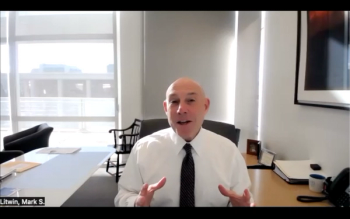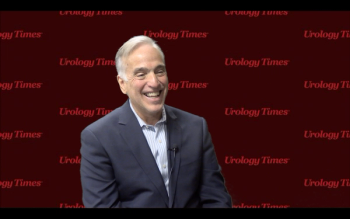
Dr. Litwin describes the challenges to a successful mentor/mentee relationship in urology
"I think that it's important to have a clear understanding and articulation of what the shared goals are," says Mark S. Litwin, MD, MPH.
In this interview, Mark S. Litwin, MD, MPH, describes three of the biggest challenges to a successful mentor/mentee relationship. Litwin is professor and chair of urology at University of California, Los Angeles.
Video Transcript:
I think that the biggest challenge with any relationship, whether it's a mentor/mentee, doctor/patient, teacher/student, or personal relationships has to do with how close and how honest the human connection is. That's what life ultimately is all about in my view is human connections in any interaction. In particular with mentor/mentee relationships, it's all about the human interaction. You want to take time to build some social capital somehow, no matter what the disparity is in terms of seniority of the mentor and the mentee. Everyone's human, obviously. The building of social capital makes a big difference.
I think that it's important to have a clear understanding and articulation of what the shared goals are. The mentor can better help the mentee if the mentor knows what the mentees goals are. I don't just mean broad based goals, [like] 'I want to be successful, get a job as a professor.' Everybody in academics wants that. I mean the particular goals. What's the path? What's the track? What's the balance you're looking for between home life and work life? Maybe the mentor can help with that, if he or she has had success in that area or at least navigated those questions. Being candid, I come back to that word several times, in the search for mutual truth is really critical in a successful mentor/mentee relationship.
Another challenge is always time, because the mentor doesn't have enough time, the mentee doesn't have enough time. Everybody's busy. Everybody's on Zoom links all the time. I think that intentionally carving out a block of time once a week to sit down face-to-face, if that's at all possible, is incredibly beneficial for the external value-added benefits that come from that. That part of it is really important. It's got to be sacrosanct time that the mentor and the mentee put on their calendars. Sure, it gets cancelled for 1 reason or another from time to time, but I think that really demonstrates commitment.
Those are some of the main challenges that I've seen in mentor/mentee relationships that are pretty straightforward to negotiate and to get past, unless there's a personality difference where the 2 just don't gel in the way they communicate. Then, okay, recognize that and either retool the relationship or find a different mentor. That's fine, too.
Ultimately, I think the success of the mentee is what the mentor is looking for. Most people in mentorship positions have had some degree of their own accomplishment. Now they're ready to kind of bask in the glow of reflected glory. That's the best kind. Being able to look at a mentee or former mentee and see what they're doing and feel proud of that and feel like, 'wow, maybe I had had a hand in helping that person get from point A to point B.' That's very satisfying. When you begin to look back, and when there's more years past than ahead, as is the case for many senior people, that really makes life worthwhile in my view.
The transcript has been edited for clarity.
Newsletter
Stay current with the latest urology news and practice-changing insights — sign up now for the essential updates every urologist needs.






